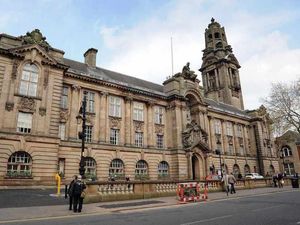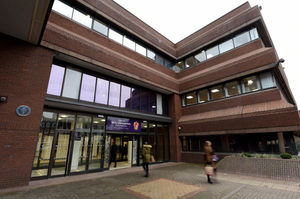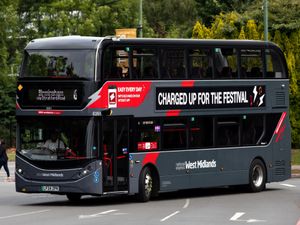Black Country councils call in bailiffs to collect £21m debt
Councils across the Black Country and Staffordshire called in bailiffs to collect more than £21 million in debts over the past two and a half years, new figures have revealed.

From 2015 six local authorities used debt collectors on a staggering 161,471 occasions, with council tax arrears accounting for around 65 per cent of cases.
The use of debt enforcers by councils has been branded 'cruel' by critics, with one Labour council which has ditched the tactic describing it as 'medieval'.
Meanwhile Lib Dems in the West Midlands have called on all Labour-run councils to scrap a policy they say picks on 'the poorest and most vulnerable'.
The association that represents local authorities said they had a duty to collect taxes in order to protect vital services.

A Freedom of Information request provided figures for the four Black Country councils, Lichfield District Council and South Staffordshire District Council.
Labour controlled Walsall Council used bailiffs 48,733 times from April 2015 to December 2017, the figures showed, bringing in a total of £5.97m.
Council tax accounted for 73 per cent of cases, while bailiffs were also sent out to collect arrears from parking fines and business rates.
Sandwell Council, which is also Labour, sent out debt collectors on 40,716 occasions over the same period, although the authority did not reveal how much money it had brought in.
Dudley Council was under Labour control until May last year when the Tories took over. It sent out bailiffs 30,688 times to collect £7.4m.
Another Labour authority, Wolverhampton Council, used bailiffs on 34,620 to recover £4m worth of debts. Tory run Lichfield District Council used bailiffs 2,903 times to collect £2.1m, and South Staffordshire District Council brought in £1.46m from 3,811 bailiff visits.
In November, Hammersmith and Fulham council announced it was stopping the use of debt collectors, describing the practice as 'medieval'.
Its Labour cabinet member for finance, Max Schmid, said the council would use its own 'ethical debt collection approach' instead.
The Local Government Association urged people facing difficulties to contact their local authority to discuss repayment options.
Vital
Claire Kober, who chairs the LGA's resources board, said: "No council wants to ask people on the lowest incomes to pay more, but councils have a duty to their residents to collect taxes – these fund crucial services, such as caring for the elderly, protecting vulnerable children, keeping roads maintained and collecting bins.
"With councils facing a £5.8bn funding shortfall by 2020, it is essential that these funds are collected so these vital services can be protected."
Paul Butters, a Lib Dem campaigner in the West Midlands, said: “Labour run councils are using people who knock on doors and take away people's possessions.
"They need to look at the way they collect their debt. Does using bailiffs fit in with their so-called honest politics? It seems to me to be a cruel measure designed to take money off the poorest and most vulnerable.
“We need our councils to vastly decrease their use of bailiffs."
A spokesman for the Department for Communities and Local Government said: "We expect councils to show sympathy for people in genuine hardship and only use bailiffs as a last resort.
"However, every penny of council tax that is not collected means a higher bill for those law-abiding citizens who do pay on time.
"To support those facing financial difficulties we have given councils the powers to establish their own council tax support schemes to best meet their local need."
Joanna Elson, chief executive of the Money Advice Trust, said many councils were 'far too quick' to turn to bailiffs.




